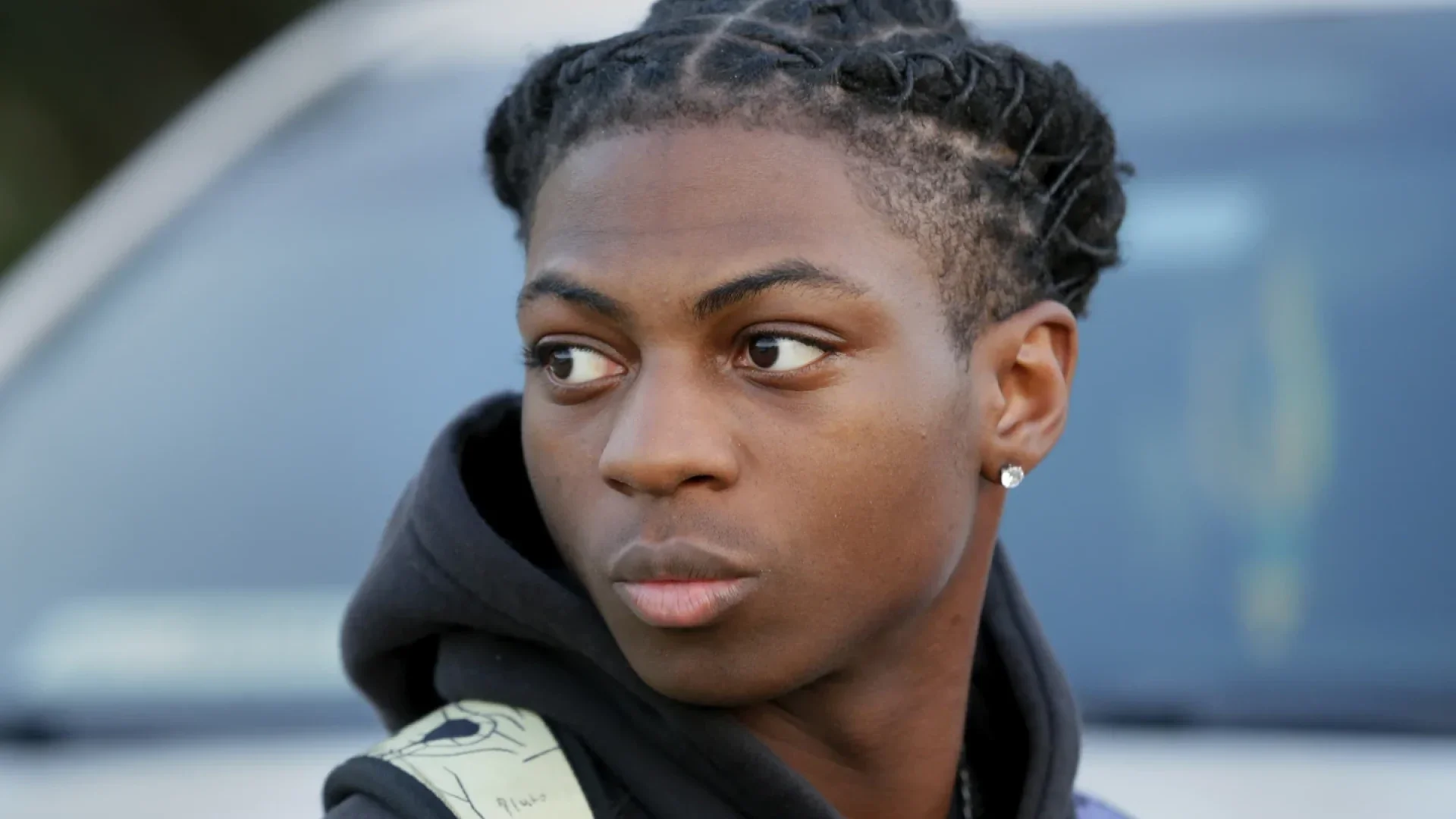
On Tuesday, a Texas judge dismissed most of the claims from the Black high school student who was punished over his hairstyle’s lawsuit. According to U.S. District Judge Jeffrey Brown, Darryl George’s only viable claim is one based on sex discrimination.
As ESSENCE has previously reported, the now 18-year-old was suspended from school his junior year and sent to an alternative disciplinary institution over his long hair, which was purportedly a violation of the Barbers Hill High School dress code and grooming policy.
This latest decision comes after the disappointing February ruling from a state judge “in a lawsuit filed by the school district that its punishment does not violate the CROWN Act.”
“The district has argued that George’s long hair, which he wears to school in tied and twisted locs on top of his head, violates its policy because it would fall below his shirt collar, eyebrows or earlobes if let down. The district has said other students with locs comply with the length policy,” the Associated Press reports.
In response, George and his mother Darresha George filed a federal civil rights lawsuit last year against the Barbers Hill school district, principal, assistant principal, the district superintendent, Texas Attorney General Ken Paxton and Texas Governor Greg Abbott. But in the latest ruling from Brown, Abbott, the district superintendent, other school employees and Paxton were all dropped as parties to the case.
The George’s also claimed a violation of their freedom of speech under the First Amendment, which Brown also denied because the George’s lawyer was unable to reference “any case law holding that hair length ‘is protected as expressive conduct under the First Amendment.’”
In addition, Brown also dismissed the George’s claims that any due process violations under the 14th Amendment had occurred. According to Brown, the reason behind the sex discrimination claim still standing was “[b]ecause the district does not provide any reason for the sex-based distinctions in its dress code, the claim survives this initial stage.”
Brown presented the question on if there was more harm from the school district’s rule than good in his order, writing “Not everything that is undesirable, annoying, or even harmful amounts to a violation of the law, much less a constitutional problem.” At the culmination of Brown’s ruling, he cited a 1970 case from El Paso, T.X. where a judge ruled in favor of a male student that was prevented from enrolling in a school district due to the length of his hair being in violation of the district’s policy. In this case, the appeals court eventually overturned the ruling by the lower court judge.
“[T]he presence and enforcement of the hair-cut rule causes far more disruption of the classroom instructional process than the hair it seeks to prohibit,” wrote the El Paso case judge. Brown concluded, “Regrettably, so too here.”
This isn’t the first time the hair policy for the Barbers Hill district has been challenged. There was another federal lawsuit in 2020, which two other students filed that is still pending. Both ended up withdrawing from the high school, but one of the students did return after being granted a temporary injunction from a federal judge who stated “there was ‘a substantial likelihood’ that his rights to free speech and to be free from racial discrimination would be violated if he was barred.”




